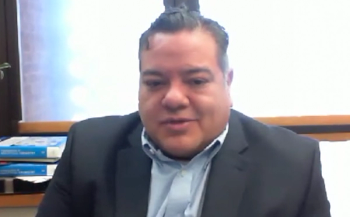
USP Awards $150K in Fellowships
In recognition of research focused on the detection of counterfeit and adulterated medicines and improved dissolution techniques, the United States Pharmacopeial Convention (USP) (Rockville, MD), has awarded $150,000 in research funds under its 2011-2012 Fellowship program.
In recognition of research focused on the detection of counterfeit and adulterated medicines and improved dissolution techniques, the United States Pharmacopeial Convention (USP) (Rockville, MD), has awarded $150,000 in research funds under its 2011-2012 Fellowship program. The fellowship’s goals are to advance new research that contributes to innovative or updated quality standards for medicines, food ingredients, and dietary supplements, and to support the work of early-career scientists in these fields.
The fellowship program offers up to three years of funding to advance small molecule drugs, biologics and biotechnology, excipients, food ingredients, and dietary supplements quality standards, as well as topics of scientific interest to USP. This academic year, two $50,000 research fellowship awards have been presented to Ph.D. candidates working in areas focused on quality standards for drugs and excipients.
Among the recipients of the 2011-2012 fellowships are:
Kaho Kwok, PhD., Purdue University, College of Pharmacy, Department of Industrial and Physical Pharmacy (West Lafayette, IN) ($50,000 Research Fellowship recipient).Kwok’s area of research is in the detection of counterfeit medicines through excipient characterization by Raman spectroscopy and multivariate curve resolution.
Ting Wang, Ph.D. candidate, University of Maryland at Baltimore, School of Pharmacy (Baltimore, MD) ($25,000 USP Fellowship recipient).Wang’s area of research is in developing the scientific basis for the application of spectroscopic and chemometric methods for excipient identification and adulteration detection.
Other fellowship recipients were:
Tariq Moujtahid, Ph.D. candidate, New Jersey Institute of Technology, Department of Chemical, Biological, and Pharmaceutical Engineering (Newark, NJ) ($50,000 Research Fellowship recipient).
Brian Krieg, Ph.D. candidate, University of Michigan, College of Pharmacy, Department of Pharmaceutical Science (Ann Arbor, MI) ($25,000 USP Fellowship recipient).
Newsletter
Get essential updates on the latest spectroscopy technologies, regulatory standards, and best practices—subscribe today to Spectroscopy.




